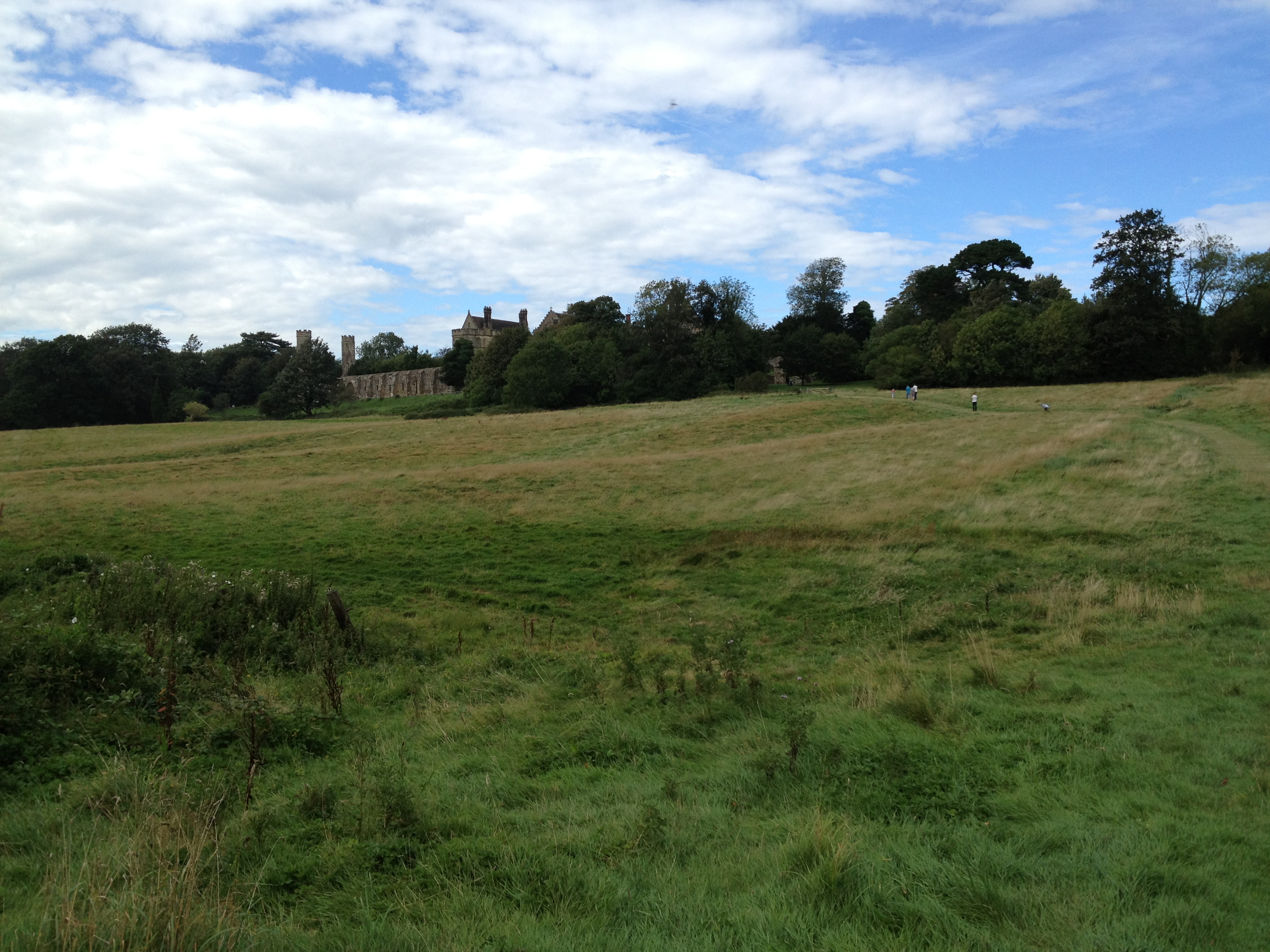The "French Connection" of 1066
 Following up on my previous blog post Everybody speaks English anyways. Really?, and prompted by our visit to the battle field of Hastings (see left), I was wondering about the French Connection.
Following up on my previous blog post Everybody speaks English anyways. Really?, and prompted by our visit to the battle field of Hastings (see left), I was wondering about the French Connection.
After all, the English forefathers had to get used to the French tongue for several hundred years – and there are many similarities between both languages.
A Momentous Event
Our visit to the battlefield in Hastings, England, and to the Tower of London refreshed some forgotten school knowledge.
It also reminded us that the Norman invasion and the victory of Duke William II of Normandy over the English army under King Harold II on October 14, 1066, represented a momentous event during the height of the Middle Ages.
The victory of William the Conqueror, how he is now mainly known, not only resulted in the French-speaking Normans' control of England, but also had tremendous influence on the English language. By imposing the French language on his court and administration, William caused many French words to become part of the English language.
 While the reign of the Normans may have begun with the victory at Hastings, it took much more for them to control the towns and the country side.
While the reign of the Normans may have begun with the victory at Hastings, it took much more for them to control the towns and the country side.
William immediately set out to take charge by introducing a series of laws, and building fortifications and castles. One of them, the Tower of London has a long and interesting history.
The White Tower, on the right, gave the entire castle its name and was begun by William already by the end of 1066. It served as royal residence, armory, treasury, as well as home of the Royal mint and the Crown Jewels.
Its location on the Thames and its fortifications which were expanded over the centuries gave it a commanding position to control London and the Thames river traffic.
While French was the language of the nobility in England for about two centuries, English continued to be spoken by the common people.
After King John lost Normandy in 1204, the use of French started to decline and English again became dominant by the beginning of the 14th century. Further, in 1362 Parliament passed a law requiring all lawsuits to be conducted in English.
True and False Cognates
Laura K. Lawless on about.com estimates that about 10,000 French words were adopted into the English language during the nearly 300 years following the Norman invasion, and that ”English speakers who have never studied French already know 15,000 French words.” She also compiled a list of 1,700 words – true cognates – that you can access with the Vrais Amis link.
There are also plenty of “false cognates.” When learning another language it's often quite helpful to also study the false cognates. Not knowing their meaning in the foreign language can lead to embarrassing moments. You can take a look at the Faux Amis, the French-English false cognates .
Learn French Easily
For English speakers who want to learn French, there are many online resources available today. (For obvious reasons we like our own French 1 course.) In one of our next posts we'll discuss various online programs that let you improve your vocabulary and/or learn French (or other languages).
And - just maybe - a reminder of the close connection between English and French will motivate some English speakers to give French another try.
FREE French Language Games and Courses
And, if you want to learn or practice some French, just click on the FREE (no registration required!) French Language Games, see how much you already know, and check back from time to time for new ones and, please, SHARE us with your friends.
And don't forget: You can practice French online for FREE with our 36-Scene travel story "Daniel en France" HERE.
Like Gamesforlanguage, Lingohut is also completely free with over 100 vocabulary lessons!
Other Language Learning Resources
We recently discovered a very effective app for learning French: MosaLingua. There are currently iOS and Android Apps, with a MosaLingua Desktop App for PC, Mac and Linux users just launched. You can also try out the "Lite" version for FREE! We like the apps a lot and are currently using them ourselves. Read Ulrike's Review HERE.
Disclosure: The MosaLingua links above are to a partner's program with revenue sharing, should you subscribe or buy. We would receive a small payment, which helps us to keep our site ad free.
